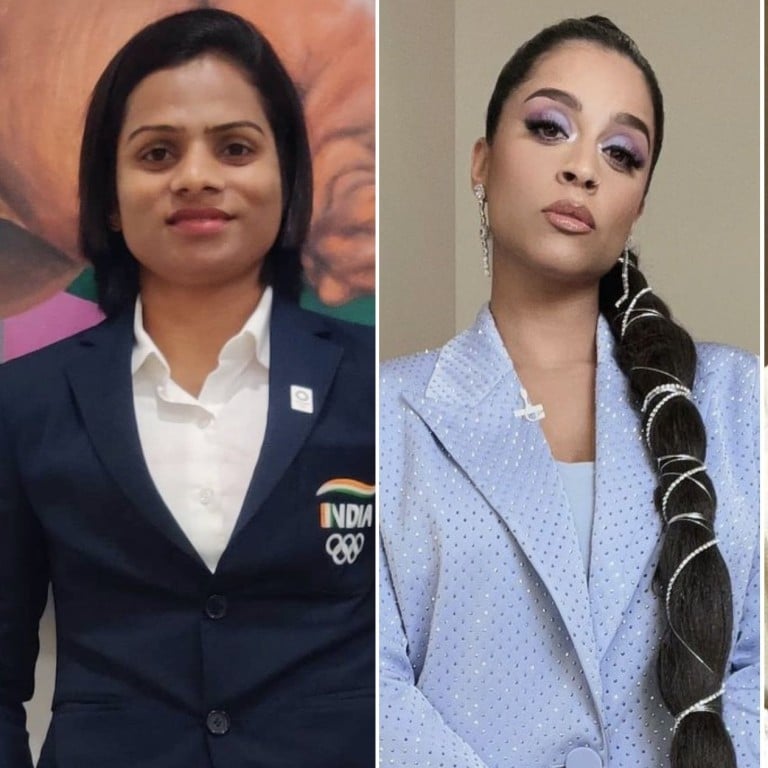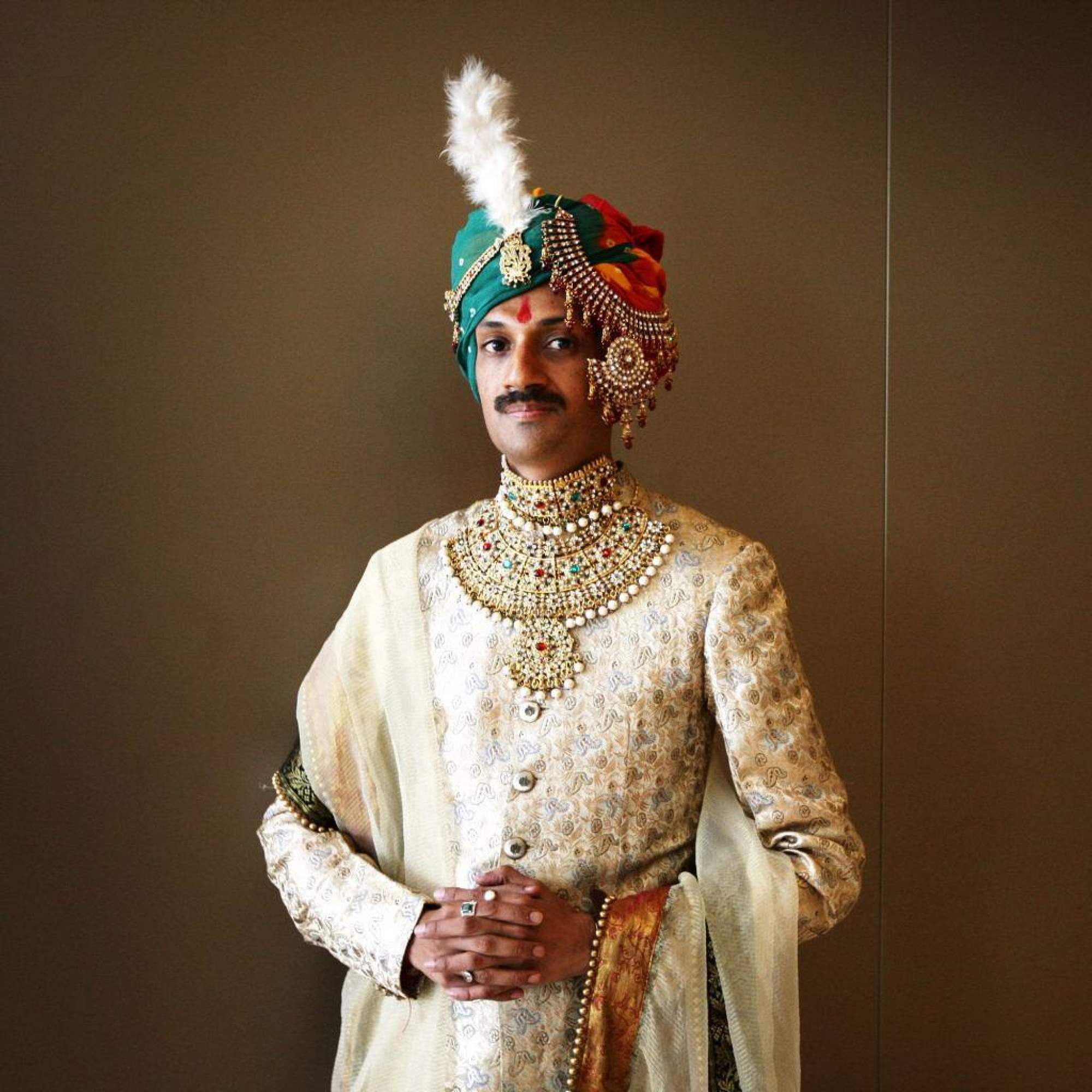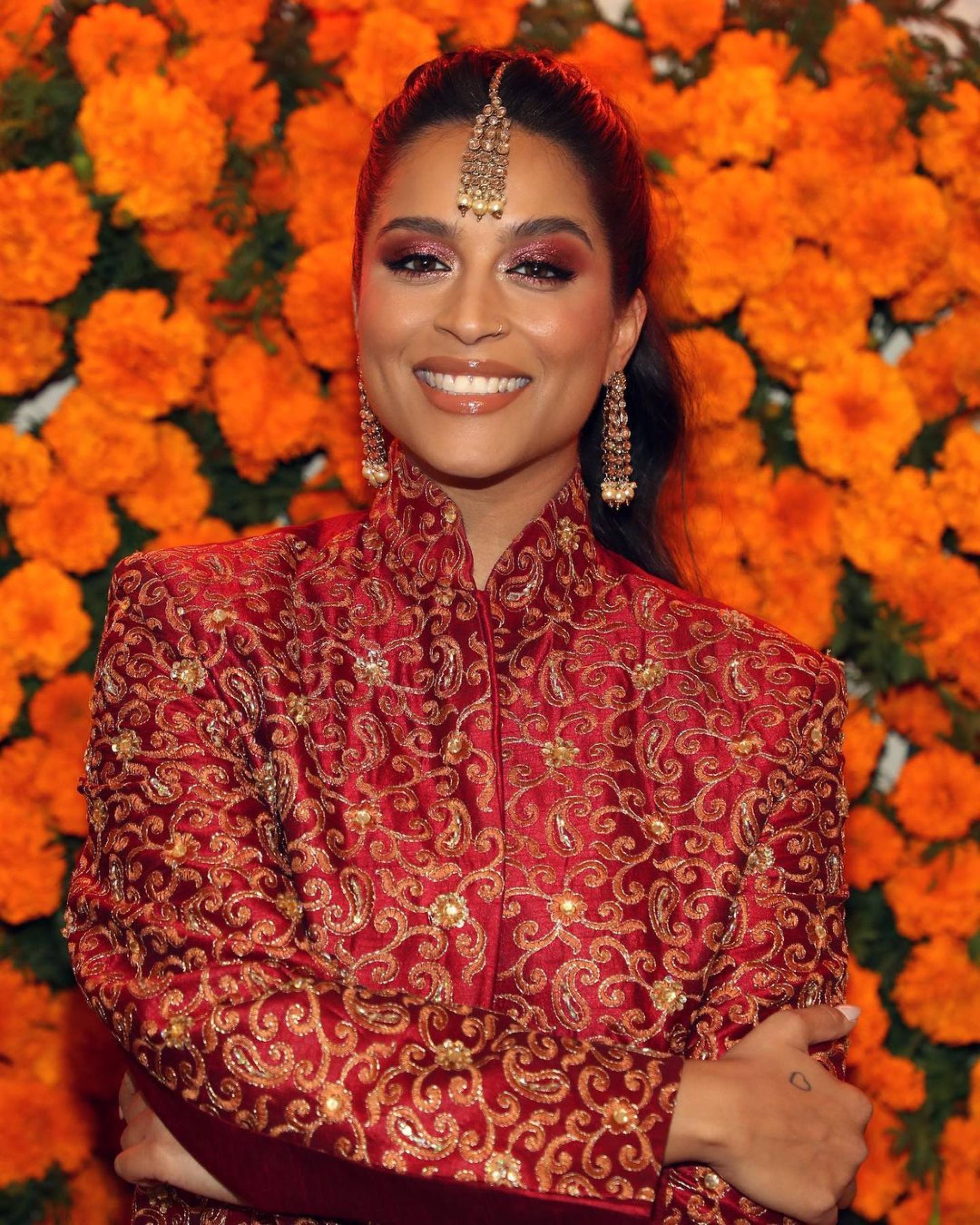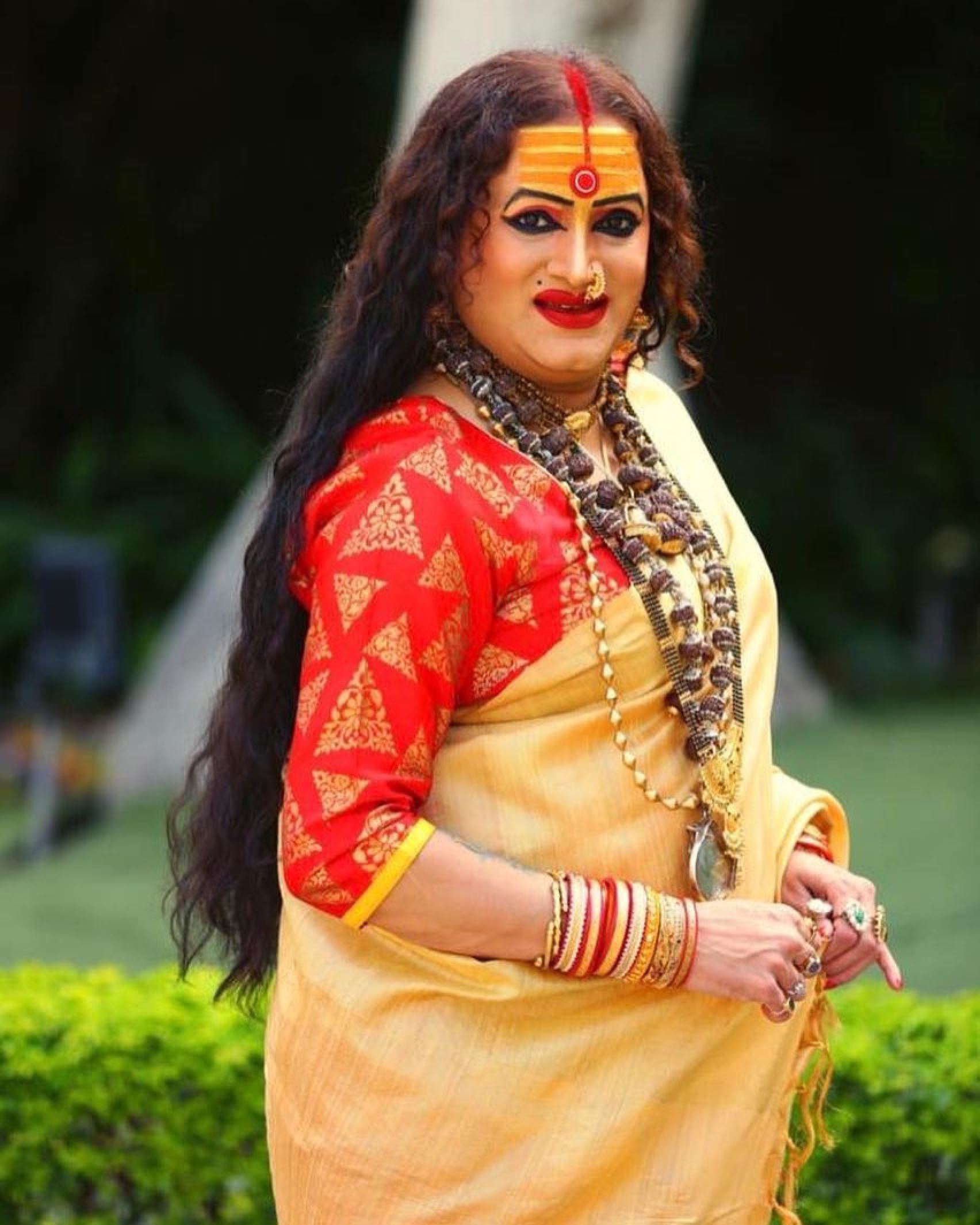7 Indian LGBT icons you need to know: from YouTuber Lilly Singh, Olympian Dutee Chand and gay royal Prince Manvendra Singh Gohil, to transgender activist Laxmi Narayan Tripathi and film director Onir

Until 2018, homosexuality was illegal and punishable in India. Although the draconian law, which demanded up to life imprisonment for anyone committing sexual acts “against the order of nature”, was scrapped four years ago, a truly inclusive society remains a distant dream. The LGBTQ+ community still faces stigma, violence and legal difficulties. However, some of the country’s most famous personalities, from sports to the film industry and media to business, are trying to change the status quo.
Here are seven of India’s most famous icons who have become darlings of the LGBTQ+ community.
Prince Manvendra Singh Gohil

Prince Manvendra Singh Gohil is India’s first openly gay royal. An exceptional ambassador of the LGBTQ+ community, Gohil knew he was gay since he was 12, but had to stay in the closet for decades. By the time he came out at 41, Gohil had endured shock therapy, conversion therapy, forced marriage to a woman, and expulsion from his inheritance. His revelation about his sexuality triggered a nationwide scandal as homosexuality was illegal in India in 2006.
Inside Shah Rukh Khan’s modest first home before fame

Though the backlash must have been traumatising and depressing, it did not stop him from living his true self and advocating for LGBTQ+ rights through his charity Lakshya Trust. In 2018, when India’s Supreme Court decriminalised homosexuality, Gohil opened up 15 acres of palace grounds to build a shelter for vulnerable gay and transgender people.
Today, he is fighting for issues like same-sex marriage, the right to inheritance, the right to adoption and a ban on conversion therapy.
Lilly Singh

When comedian and actor Lilly Singh, who has over 14 million subscribers on YouTube, revealed on Twitter in 2019 that she is bisexual, she made history as the first Asian queer woman to host a late-night television show.
“There’s a lot of homophobia in the Indian community. In fact, when I came out, people told me that I’d lose all my popularity, all of my fans and all of my business in India. But then I didn’t – turns out in a place with 1.3 billion people, a lot of them don’t give an ‘f’ about who I give an ‘f’,” she said in her monologue on her show a few months later.
The YouTuber had been a vocal supporter of the LGBTQ+ community, gay pride events and same-sex marriage for many years, and her announcement was celebrated across the globe.
Prince of India: the baby bling life of Mukesh Ambani’s grandson Prithvi
Onir

One of the few openly gay film directors in Bollywood, Onir’s 2005 directorial debut My Brother Nikhil was the first mainstream Hindi film to focus on homosexuality and Aids in India. It was released at a time when LGBTQ+ rights activists were fighting to overturn India’s constitutional ban on same-sex relationships.
“This film has shown it’s possible to show a committed gay couple. It’s passed the Censor Board without any comment. Theatres have not been attacked. There’s no catcalling. It’s treated respectfully by the audience and the filmmaker. I’m happily surprised,” Vikram Doctor, a journalist associated with the Gay Bombay Group, told The New York Times.
Onir’s eighth film, I Am, which again focused on same-sex relationships, won the National Award in 2011. Recently, India’s defence ministry rejected the script of We Are, a sequel to I Am, his next film inspired by the real-life story of a gay major who had to quit the army because of his sexuality. According to The Wire, though he is disheartened, he will continue to celebrate queer love stories.
Inside Priyanka Chopra and Nick Jonas’ surrogate baby surprise
Dutee Chand

Indian ace sprinter, Asian Games silver medallist and Olympian, Dutee Chand is also India’s first openly queer athlete. Inspired by the Supreme Court’s historic decision to decriminalise gay sex in 2018, then 23-year-old revealed she was in love with a 19-year-old girl from her village.
Though she was praised for coming out – Mercury News reported that renowned Indian LGBTQ+ rights activist Harish Iyer called her a “beacon of hope” who “paved the path” for many by simply standing up for herself – Chand also faced a barrage of criticism and hostility from her family. Her father called her relationship “immoral and unethical” and cursed her for destroying the reputation of their village, according to The Times of India.
However, the first Indian sprinter to reach a final at a global athletics event (the 2013 World Youth Championships) and current national champion in the women’s 100 metres event remains unfazed. “I had planned to settle down with my partner. But my family got wind of our relationship and my sister threatened that she would tell the world about us and shame us. So I decided to tell everyone myself. Now that I have done it, I’m at peace,” she told The Times of India.
Keshav Suri

Keshav Suri, the executive director of The Lalit Suri Hospitality Group, is a prominent LGBTQ+ activist in India. Also known as the rainbow warrior, Suri filed a petition with the Supreme Court in 2018 challenging Section 377 of the Indian Penal Code that criminalised same-sex relationships arguing that “neither the state nor the Centre has a right to enter anybody’s bedroom”, according to Mint.
4 of Asia’s richest power couples – from K-pop to Bollywood
“We need to grow and mature as a society. I am a proud member of the LGBTQI community in India. I have no qualms in admitting that I have been in a committed relationship with an adult male for a decade. Being a member of the community, I have first-hand knowledge of the trials and tribulations faced by them in India,” he said in an interview with Daily O.
Six months later, the Supreme Court overturned the 158-year-old colonial-era law and decriminalised gay sex. Suri used the judgment to launch the Keshav Suri Foundation in October to empower the LGBTQ+ community economically.
Laxmi Narayan Tripathi

Laxmi Narayan Tripathi, a transgender activist, is a familiar face at international forums, including the United Nations. Her non-profit, the Astitva Trust, aims to support and empower hijras (a largely ostracised group in India) in Thane, near Mumbai. The star of Between the Lines, a 2005 film about the lives and struggles of transgender people, Tripathi is also credited with launching the Indian Super Queen, India’s first transgender pageant in 2010.
Probably India’s most prominent LGBTQ+ activist, Tripathi played a key role in legally recognising marginalised gender identities. Thanks to her efforts, the Supreme Court in April 2014 granted legal sanctity to a gender classification that is neither male nor female.

The landmark judgment allowed adults in the country to cast their votes under the “other” gender category for the first time in the following month’s General Elections.
Vikram Seth

Best known for his 1993 novel A Suitable Boy (which sold more than 25 million copies worldwide), Vikram Seth is not only one of India’s most influential writers, but also a recipient of Padma Shri, the country’s fourth-highest civilian award. Son of Leila Seth, the first woman Chief Justice of a High Court in India, Seth is one of the well-known literary figures in the world who has chosen to break barriers and stand up for himself.
Inside Indian billionaire Rakesh Jhunjhunwala’s new Mumbai mega mansion
In 2013, he launched a fierce attack on the Supreme Court’s decision to reinstate Section 377. “You find homosexuality in the Kama Sutra. In the Hindu tradition, the Muslim tradition, the syncretic [tradition]. There has never been intolerance of this kind,” he told The Guardian.
His mother, a strong supporter of the gay rights movement in the country, also wrote a lengthy article condemning the judgment. It was probably the first time a gay man had gotten the support of his family publicly in India.
“Vikram is now a criminal, an unapprehended felon. This is because, like many millions of other Indians, he is gay. The Supreme Court judgment means that he would have to be celibate for the rest of his life or else leave the country where he was born, to which he belongs, and which he loves more than any other,” she wrote in the article titled “A Mother and a Judge Speaks Out on Section 377”.
Since it was a struggle for him to come to terms with his sexuality, Seth once wrote a poem titled Through Love’s Great Power hoping that it “would give heart to some”. Applauding the 2018 Supreme Court judgment on the right to privacy, Seth told ThePrint, “There is a lot of suffering involved; in small towns and villages, in metropolitan cities, even in a liberal family like my own, I found it difficult to understand myself. It was comparatively easy for me compared to those who are in service; they may even lose their livelihood. I only wished they would come out.”

- LGBT activist Laxmi Narayan Tripathi played a key role in India’s decision to legally recognise the gender identity of transgender people in 2014
- Novelist Vikram Seth and business tycoon Keshav Suri openly criticised the colonial-era anti-homosexual law Section 377, leading to it getting scrapped in 2018